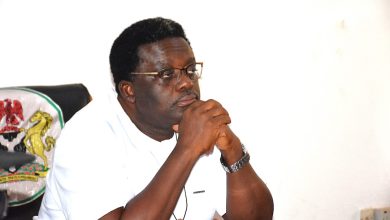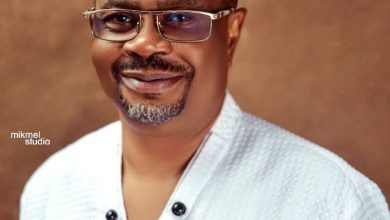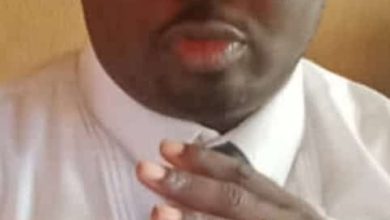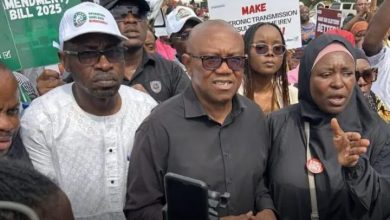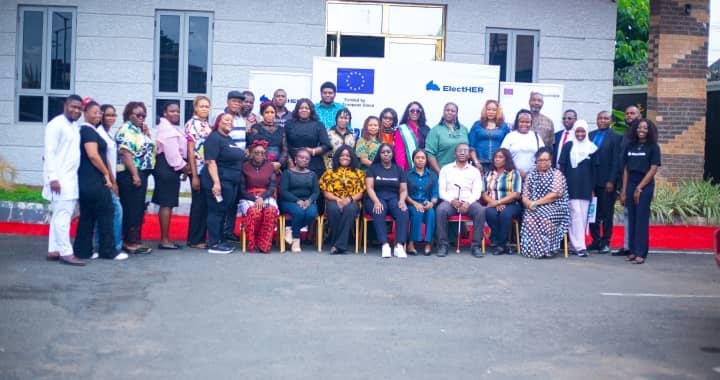
By Tony Okafor, Awka
With the November governorship election in Anambra State fast approaching, ElectHER, a Pan-African non-partisan organisation advancing gender-inclusive democracy, has intensified advocacy to ensure that the exercise is credible, secure, and inclusive.
The organisation, with support from the European Union Support to Democratic Governance in Nigeria (EU-SDGN) programme, concluded a two-day engagement in Awka on Wednesday.
The exercise combined a multi-stakeholder roundtable and advocacy visits to security agencies, all geared towards strengthening trust in the electoral process.
The roundtable, held at the Radisson Onyx Hotel on September 17, convened representatives of the Independent National Electoral Commission (INEC), security agencies, political parties, civil society, academia, the media, and grassroots leaders.
Discussions focused on voter mobilisation, women’s participation, and practical strategies for delivering peaceful, inclusive, and transparent polls.
ElectHER’s Chief Executive Officer, Ms. Ibijoke Faborode, noted Anambra’s history of women’s political visibility, citing Dame Virginia Etiaba’s tenure as Nigeria’s first female governor and the state’s relatively high number of female legislators.
However, she expressed concern over what she described as a “striking contrast.”
“Despite women making up 58 per cent of new voter registrants in Anambra, they occupy only 0.6 per cent of elected offices,” Faborode observed, adding “We cannot allow insecurity and systemic exclusion to silence women in a state where they form such a significant share of the electorate.”
Her remarks were reinforced by ElectHER’s Democracy and Governance Programmes Lead, Ms. Zigwai Tagwai, who stressed the need for collaborative action by INEC, political parties, the media, and security actors to restore citizens’ confidence and boost turnout.
Contributions from stakeholders underscored the urgency of electoral integrity. Journalist Chukwudi Philip urged the media to intensify fact-checking and avoid amplifying unverified claims, while Gabriel Okpaleze called for electronic transmission of results to curb delays that fuel distrust.
Labour activist Comrade Ernest Nnoli pushed for more effective deployment of BVAS technology and systematic verification of information to counter fake news.
Civil society representatives, including the Development for Community Democracy Advocacy Initiative (DECODA), the Centre for Development and Empowerment of Knowledge (CEDEK), and the Water, Sanitation and Hygiene (WASH) network, highlighted misinformation, insecurity, and weak party commitments as obstacles to women’s participation.
The dialogue produced concrete pledges. INEC promised to recruit beyond 26,000 ad hoc staff and to improve polling unit management.
Civil society groups committed to voter mobilisation and citizen hotlines, while media representatives resolved to uphold ethical reporting.
Security agencies assured preventive deployments at flashpoints and gender-sensitive protection measures. Political parties were pressed to adopt issue-based campaigns and increase the visibility of women candidates.
On September 18, ElectHER undertook an advocacy visit to the Nigeria Security and Civil Defence Corps (NSCDC), where State Commandant Maku Olatunde reiterated the Corps’ readiness to secure the electoral process before, during, and after the polls.
He pledged that female officers would be deployed in sufficient numbers, noting that inclusivity in security operations is vital for credible elections.
ElectHER pledged to consolidate the outcomes of the engagements into advocacy briefs and mobilisation campaigns targeting women and youth.
The organisation also reaffirmed its commitment to pushing broader electoral reforms, including the Independent Candidacy Bill and the Reserved Seats Bill, as part of its long-term agenda to deepen democracy in Nigeria.

